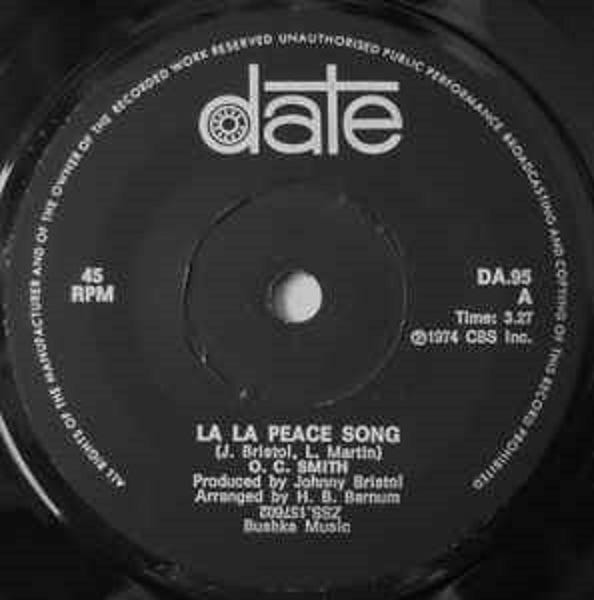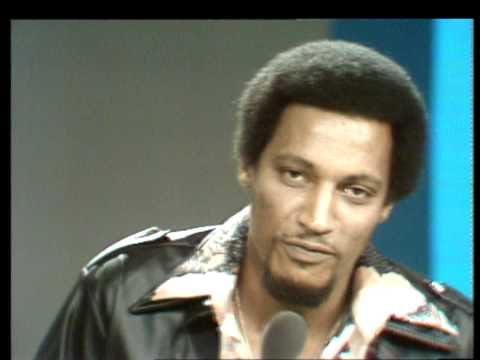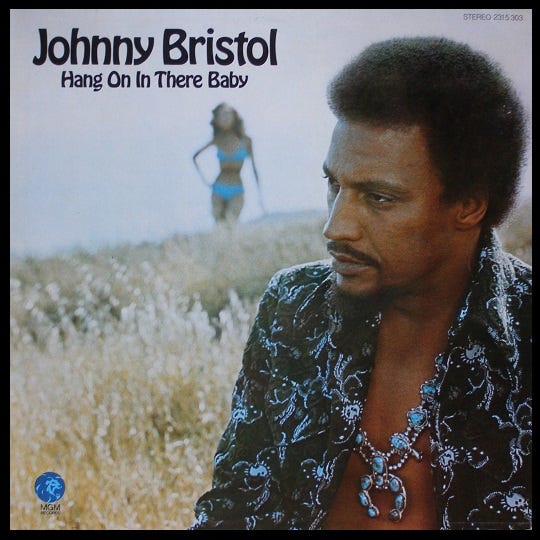Johnny Bristol (February 3, 1939 – March 21, 2004) – Woman, Woman (1974)
This ultra-funky, lyrically powerful women's liberation anthem from Bristol's first solo LP featured a stellar backing band whose names remain a mystery.

Watch full video on Substack or Twitter.
Johnny Bristol was a multi-talented singer/songwriter/producer who helped create some of Motown’s biggest hits of the late 60s. He later had his own solo career as a recording artist.
Born in Morganton, North Carolina, Bristol sang with a vocal group in high school called the Jackets. He joined the Air Force after graduating and served until 1962. While still in the service he became half of the duo Johnny & Jackey. They cut two singles in 1959 for Anna Records, the label co-owned by Berry Gordy’s sister Gwen. The duo also released four records on Tri-Phi, another label co-owned by Gwen Gordy and producer Harvey Fuqua.
By 1963, Bristol was working for Motown as a producer and songwriter, and married Berry and Gwen’s sister Iris Gordy. When Motown bought out Tri-Phi, he began working closely with Fuqua.
They co-produced a string of hits for Marvin Gaye and Tammi Terrell, including “Ain't No Mountain High Enough” and “Your Precious Love,” both written by Nickolas Ashford and Valerie Simpson and released in 1967. And “If I Could Build My Whole World Around You” (1968), which Bristol and Fuqua co-wrote with Vernon Bullock.
They also co-wrote and co-produced Edwin Starr’s “25 Miles” (1968), the #2 R&B hit title track to David Ruffin’s debut solo album “My Whole World Ended (The Moment You Left Me)” (1969), and the Supremes’ final single with Diana Ross, “Someday We’ll Be Together” (1969). Bristol provided the male vocals on “Someday,” after an engineer accidentally recorded him ad-libbing encouragement to Ross during the recording session and Bristol decided it fit the song’s mood. He had co-written it in 1961, the same year his former duo Johnny & Jackey released the original version.
On his own as a producer, Bristol co-wrote and produced the Miracles’ swan song with Smokey Robinson, “We've Come Too Far to End It Now“ (1972), from the last album he recorded before leaving the group.
Bristol left Motown in 1973 and joined CBS as a producer. There he worked with artists including Randy Crawford and Marlena Shaw.
In 1974, he wrote and produced the anti-war anthem “La La Peace Song,” which was recorded that year by both O.C. Smith and Al Wilson. Bristol sang on Wilson’s version, released on Bell, which reached #62 on the Billboard Hot 100. O.C. Smith’s version on Columbia Records did better, peaking at #30. Sales suffered because the two versions were released almost simultaneously. However, the song was a hit in the emerging disco scene, a favorite at Nicky Siano’s influential NYC nightclub The Gallery and elsewhere. Smith’s version made Billboard’s list of the Top 50 Disco Hits of ‘74.
Bristol decided he wanted to restart his own career as a singer/songwriter and signed a contract with MGM Records. His first solo LP, Hang On In There Baby, came out in 1974. Its title track was a #2 R&B hit that crossed over to #8 on the pop charts. Another single “You and I” reached #20 R&B, and the album itself hit #7 on the R&B charts. On the strength of this LP, Bristol received a Grammy nomination for Best New Artist of the year.
The album was produced by Bristol, who solely wrote seven of its ten tracks and co-wrote the remaining three. Arrangements were done by legendary arranger/producer H.B. Barnum, who had previously worked with many top artists including Aretha, Count Basie, Etta James, Frank Sinatra, and the Supremes.
The opening cut on Hang On In There Baby was the stunning track “Woman, Woman,” which Bristol wrote. Lyrically, it was a feminist anthem, declaring himself firmly on the side of women’s lib.
“Woman of the world...you're something special, girl...you're not a tool for some damn fool to break. That you don't have to take. If you could tell me, can't you see...woman in her wisdom should be free!"
The song’s powerful message came wrapped in an epic production drenched with horns, strings and super funky synthesizers.
Unfortunately, the full lineup on “Woman, Woman” and the rest of this superb LP remains unknown, only acknowledged on the back cover with “A special thanks to all the musicians who lent their talent and energy in helping to make this album.” It is known that one of the talented members of the backing band was prolific session guitarist David T. Walker. Together with the other players involved, he helped make Bristol’s debut masterpiece shine.
#soul #funk #Motown #JohnnyBristol









